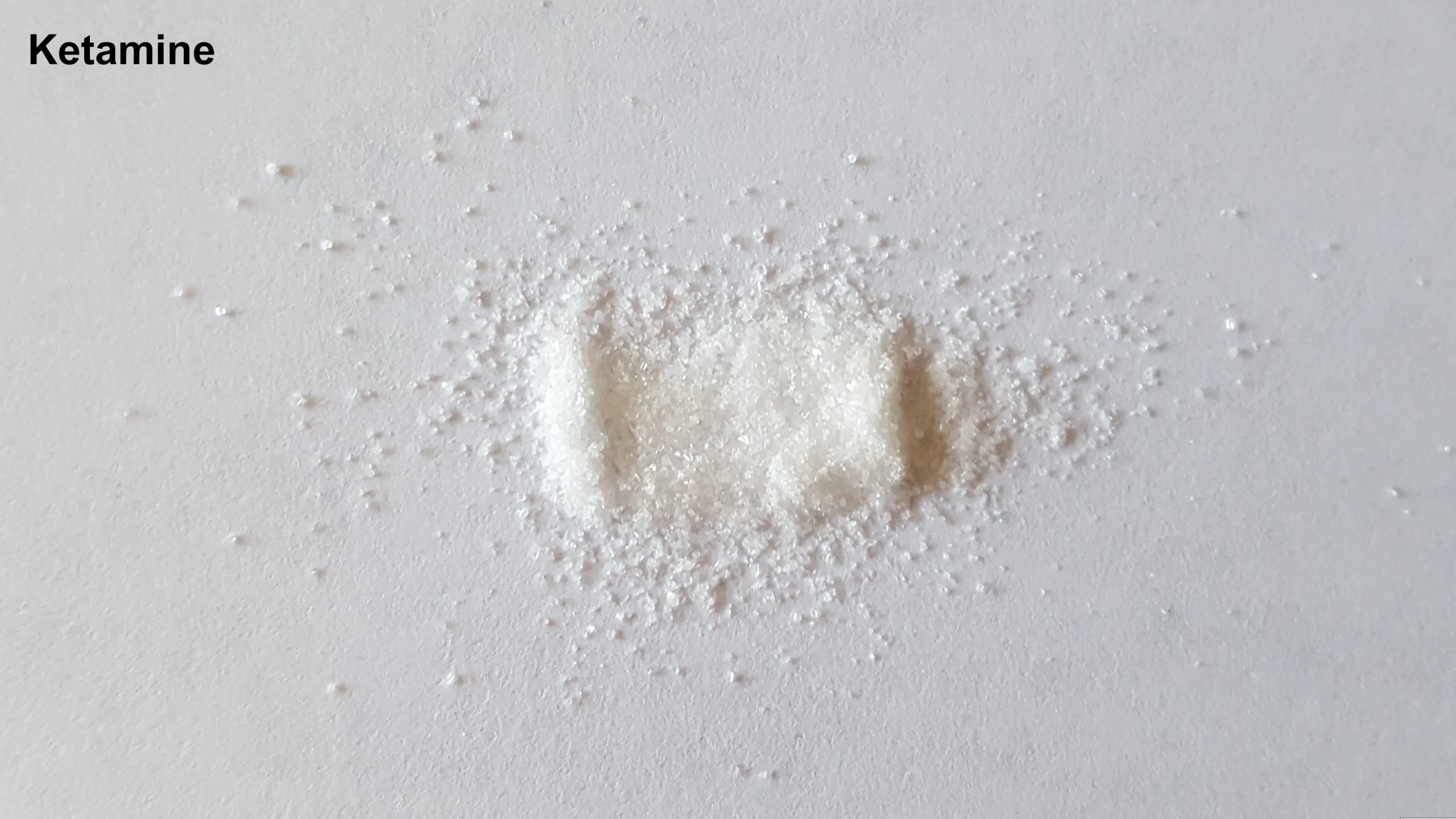Per research from the Lancet, rates of depression and anxiety shot up by 25%, thanks in part to the 2020 COVID-19 pandemic. Also, an estimated 703,000 people a year take their life around the world. With 30% of adults with depression not responding to antidepressants, it’s clear that we need to be looking at alternative therapies if we want to protect our mental health.
The use of psychedelics has been touted as the future of mental health therapies and treatment, and one party drug continues to be at the forefront of these discussions: ketamine.
What is ketamine?
Ketamine is currently classified as a Schedule III drug, which means that it’s acknowledged as having medical use. However, schedule III drugs do have the potential for physical and psychological dependence.
During the 1970s, The Food and Drug Administration (FDA) approved the use of ketamine as an anesthetic. Yet, thanks to growing research, particularly on its effect on treatment-resistant depression, the FDA approved a version of ketamine in the form of a nasal spray called Spravato (esketamine), in 2019. The approval of this nasal spray, which is only available at a certified doctor’s office or clinic, highlighted the role that ketamine could play in future mental health treatments.
Ketamine and Mental Health Conditions: What’s the Link?
According to experts, ketamine works by triggering an increase in the production of glutamate. Glutamate is a neurotransmitter that is important to memory, cognition, and mood regulation.
In addition to triggering glutamate production, ketamine may also reduce inflammation, which has been linked to mood disorders.
Ketamine is often reserved for those with mental health conditions that are resistant to common treatments like antidepressants. As such, the drug’s effect on the brain may be why the following studies have found an association between the drug and improved mental health:
- A 2021 study published in the American Journal of Psychiatry provided the first evidence of repeated ketamine infusions reducing symptom severity in individuals with chronic PTSD.
- A review study published in the British Journal of Psychiatry Open analyzed 83 existing studies and concluded that ketamine may offer relief from depression, suicidal ideation, and other mental health symptoms.
- A 2022 study published in The Journal of Clinical Psychiatry found that in 424 patients with treatment-resistant depression, ketamine was effective at reducing symptoms of suicidal ideation, depression, and anxiety.
- A 2022 study suggested that ketamine may work as an intervention in individuals dealing with eating disorders, particularly those who are resistant to the psychological, dietetic, and pharmacological interventions used in standard practice.
- A 2023 study suggested that ketamine may be an effective treatment for cocaine-use disorders, with the researchers revealing that ketamine was associated with significant improvements in remission among people with cocaine-use disorders.
How can I try ketamine?
As mentioned, ketamine is a Schedule 3 drug, and that means you can only get it from a certified doctor or clinic. Due to the growing interest in the drug, many wellness spas and clinics have begun incorporating the drug into their treatment offerings,
“You pay out of pocket, there’s no real standard protocol, different providers do it differently,” said Albert Garcia-Romeu, an associate professor at Johns Hopkins University School of Medicine, to the Washington Post.

Mental Health Photo by Priscilla Du Preez on Unsplash
“Some people use it with wraparound talk therapy, others don’t — they just lay you in a bed, do the treatment, then you go home.”
During ketamine therapy, intravenous infusions of ketamine are administered for about 40 minutes. While this may seem like a long time, the dose is lower than when the drug is used as an anesthetic.
Ketamine treatments can range from visiting a clinic for ketamine therapy sessions to telehealth companies like Mindbloom providing at-home ketamine therapy with virtual support.
Is ketamine safe?
Ozden Merve Mollaahmetoglu is a University of Exeter Ph.D. candidate and co-author of the study that was published in the British Journal of Psychiatry Open. Speaking to Medical News Today, they stated that the safety of ketamine is guaranteed within a clinical setting,
“Ketamine is a very safe drug in a clinical setting. When people are given ketamine, we see mild increases in blood pressure and heart rate, which can be monitored and managed in clinical settings.”
Mollaahmetoglu adds that in such settings, individuals are provided with preparation and psychological support during and after ketamine infusions. This reduces the risk of adverse psychological reactions.
Having said that, all drugs have side effects and the following have been associated with ketamine infusion:
- high blood pressure
- nausea and vomiting
- drowsiness
- Perceptual disturbances (time appearing to speed up or slow down; colors, textures, and noises that seem especially stimulating; blurry vision)
- dissociation (sometimes called out-of-body experiences)
Important to know
These side effects refer to the use of ketamine within a clinical setting. Recreational ketamine has more complex side effects which include:
- muscle spasms or stiffness
- urinary problems
- Confusion
- seizures
- Anxiety
- Hallucinations
- insomnia
- Addiction
Additionally, a review published last year found that the long-term use of recreational ketamine, at high doses, may cause mood disorders and psychotic symptoms.
Is ketamine the future of mental health therapy?
It’s definitely promising, but there are a few things that we need to consider first. For one, we don’t know if ketamine is an effective therapy for all individuals with mental health conditions that are resistant to standard forms of treatment. We also need to decipher what levels of dosing will be more effective, as well as the long-term effects of ketamine treatment.
Also, ketamine is a Schedule III drug, which means that it has a high propensity for abuse,
“Ketamine works through an opioid mechanism and ketamine in certain forms, and in certain situations, it’s highly addictive,” says Dr. Alan F. Schatzberg, a professor of psychiatry and behavioral sciences at Stanford University, to Medical News Today.
The use of ketamine to treat or manage mental health conditions does look promising, but it’s still in its early stages. Also, ketamine is not a cure for mental health conditions, and it will need to be part of a comprehensive plan aimed at alleviating symptoms. Please consult a professional for any further advice or treatment protocols.
As we await more studies to clarify the long-term efficacy and effects of ketamine, we may need to focus on another psychedelic compound that has shown just as much promise: magic mushrooms.





![women [longevity live]](https://longevitylive.com/wp-content/uploads/2020/01/photo-of-women-walking-down-the-street-1116984-100x100.jpg)










